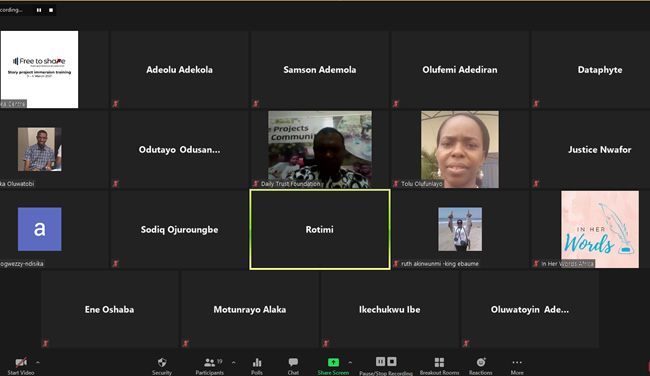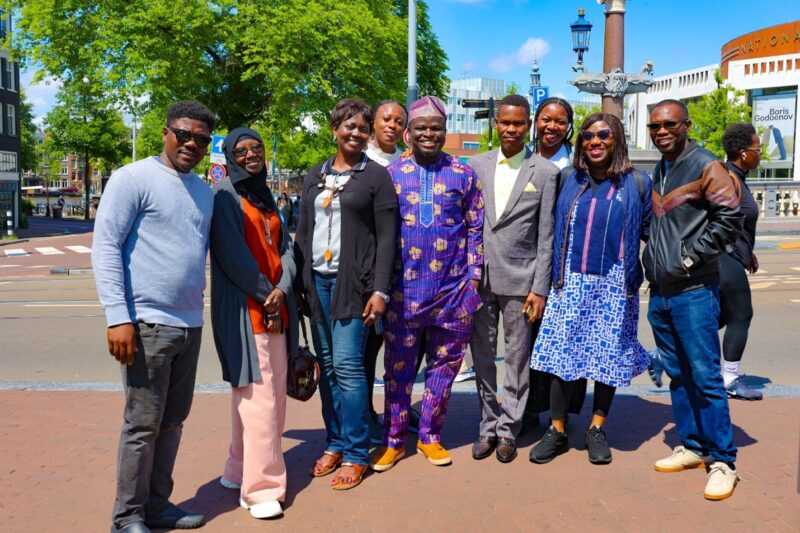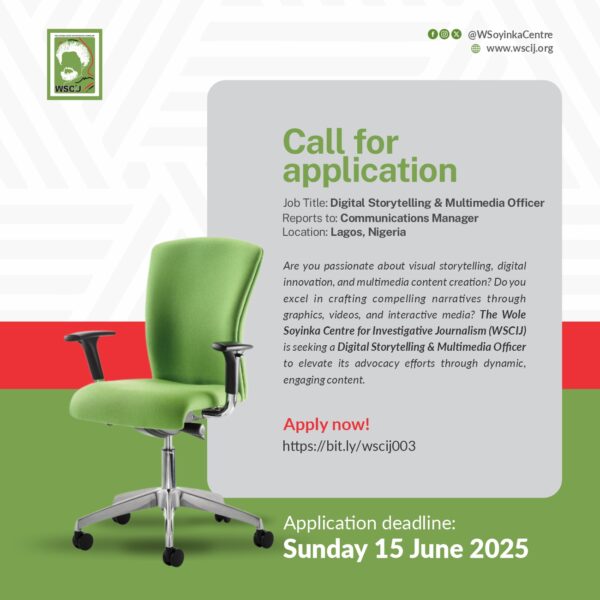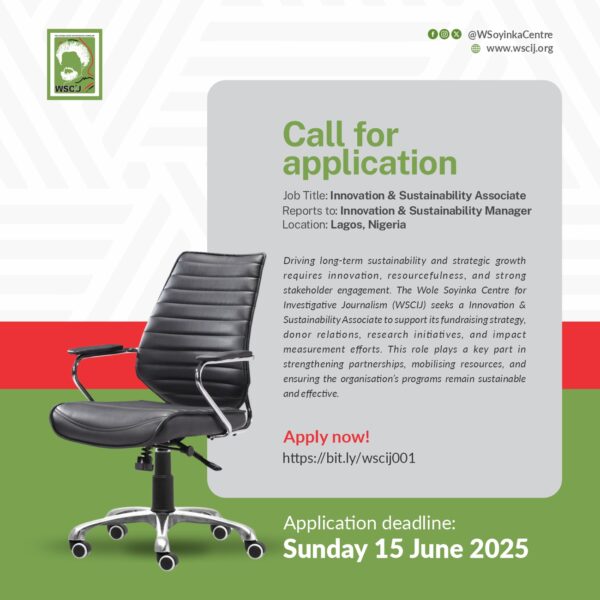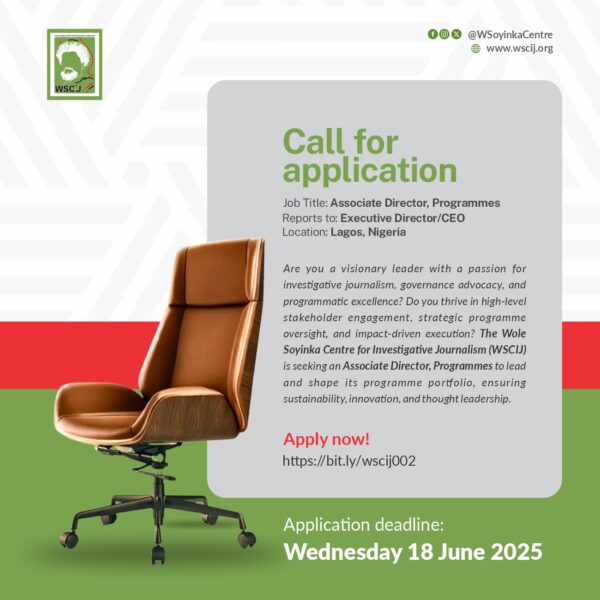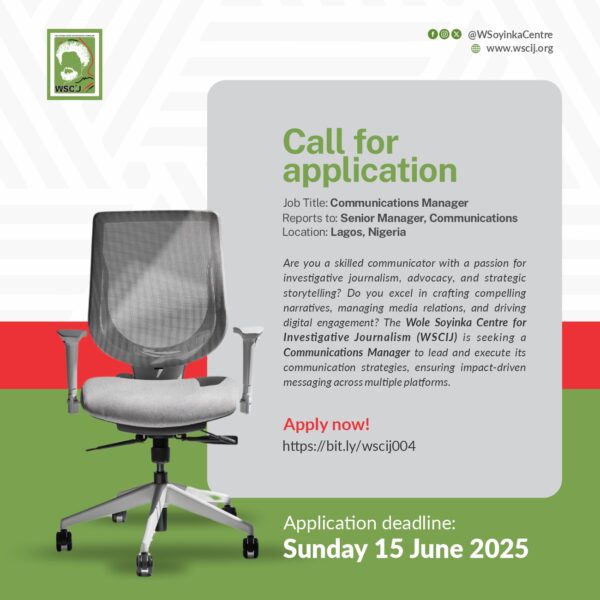The Wole Soyinka Centre for Investigative Journalism (WSCIJ) has hosted a two-day training, on Wednesday 3rd and Thursday 4th March, to help reporters better investigate critical issues around COVID-19. This came as part of the centre’s response to adequately report the coronavirus pandemic and it’s effect under its Free to share initiative. The training came on the heels of Nigeria commemorating one year since the index case was confirmed on 27 February 2020.
Before the commencement of the initiative, the centre had facilitated 118 stories on the pandemic and the realities on the ground in terms of government interventions and promises.
Adeolu Adekola, WSCIJ’s senior programme officer, in his opening remarks noted that while the coronavirus pandemic has been in the country for about a year, there is still more to be reported about it and its multi-faceted impact. Sharing data from the centre’s analysis of COVID-19 reports as part of a three-month media monitoring on health in 2020, Adekola observed that although there were many reports in May when the monitoring started, the media did not stay on COVID-19 stories, as evidenced in a drop in the number of reports from 3,135 in May to 1,431 in June, and then 1,178 in July.
Taking the session on COVID-19 re-explained, Tolu Olufunlayo, a senior lecturer and consultant doctor with the Department of Community Health and Primary Care, Lagos University Teaching Hospital, took the participants on salient medical facts about COVID-19 to help them improve their knowledge of the pandemic. Among other things, the public health expert explained the right use of terms like prevalence and incidence, and isolation and quarantine which according to her reporters have often misused or used interchangeably. She then advised the participants to keep their use of words as simple as possible to avoid a mismatch in the use of the terms.
The need for reporters to understand the demography of Nigeria for a more nuanced reporting was the highlight of the session by Rotimi Sankore, chief editorial coordinator, special projects, AIM Media Group. Sankore stated that the participants should interpret data they use based on scale and other socio-economic issues. He also charged the reporters to interrogate how COVID-19 is impacting key development issues such as gender, income inequality, housing, transportation, literacy level as well as hunger and malnutrition.
On his part, Theophilus Abbah, programme director, Daily Trust Foundation, shared tips for investigating COVID-19 issues with the participants. He hinted that to use an anonymous source, a reporter must get evidence to support the claim of the source.
“Stating that a reliable source spoke to you is not enough. You have to get sufficient evidence to back up the claim. Reporters have to start thinking like lawyers.” he said.
Abigail Ogwezzy-Ndisika observed the need to balance access to information and COVID-19 during her session on access to information and COVID-19: The black, white and grey areas. The professor of mass communications at the University of Lagos stated that the reporters should engage multiple sources and evaluate them carefully as some information they will be getting will be half true, misleading or downright false.
The meeting was coordinated on the first and second days respectively by Toyin Adeniran and Samson Ademola, Programme Officers with WSCIJ. As part of the training, stories pitched by the participants were discussed and refined by the resource persons to make them stronger investigative ideas.
Free to share is WSCIJ’s initiative geared at broadening the scope of freedom of expression through engagements on media ethics and accountability journalism. This pilot of the project interrogates the intersection between COVID-19, access to information and misinformation by publishing data-driven, human interest investigative stories that will support the media to better provide access to information that informs, educates, and debunks misinformation about the coronavirus pandemic and its multifaceted impact on lives and livelihoods. It is implemented in partnership with Free Press Unlimited (FPU) as part of the ‘COVID-19 response in Africa: Together for reliable information project’, funded by the European Union (EU).

